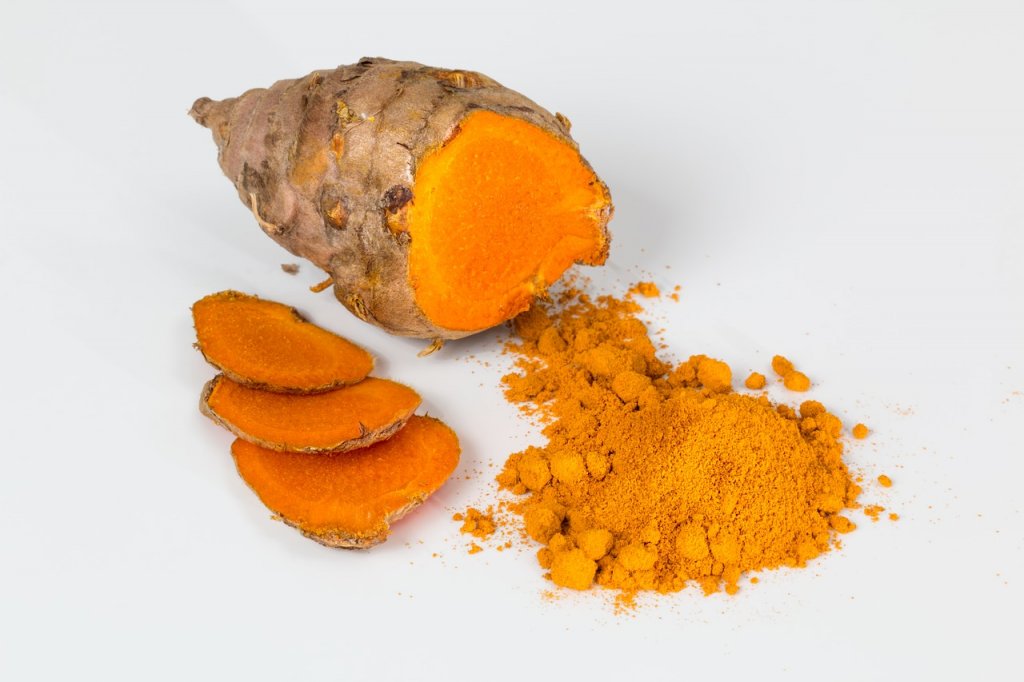
Turmeric and gout: Read on to discover the active ingredient that makes turmeric such an effective natural home remedy for gout. Turmeric not only reduces inflammation during an attack, it also lowers uric acid to help prevent future gout attacks.
Turmeric and Gout
Turmeric is increasingly being used as a natural home remedy by gout sufferers, not only as an anti-inflammatory during an attack, but also, for lowering and maintaining healthy uric acid levels to help prevent recurring attacks…
Turmeric is an herb; a member of the ginger family. It’s native to the forests of South East Asia and is a key ingredient in very many Asian dishes as well as being prized for its healing qualities. And today it’s considered a super-food by an increasing number of people in the West too…
It has been used in Asia (especially India – the largest producer and user of turmeric in the world) for 1000’s of years as a natural medicine for all sorts of conditions such as; gout, rheumatoid arthritis, general aches and pains,stomach and liver problems, digestive disorders, respiratory conditions, conjunctivitis, sores, wounds, scabies, eczema, and other skin conditions.
How Does Turmeric Help Gout?
Turmeric is rich in curcumin, a powerful flavonoid which is able to ‘deactivate’ inflammatory systems in the body.
For example, a 2009 Chinese study – Insights Into the Inhibition of Xanthine Oxidase by Curcumin – found that curcumin inhibited the enzyme, xanthine oxidase, one of the prime causes of oxidative stress and inflammation.
The viability of curcumin as a natural anti-inflammatory agent was also highlighted in a review of some 200 studies that was published in The International Journal of Biochemistry & Cell Biology in 2009. The review authors were of the opinion that:
“Although safe in most cases, ancient treatments are ignored because neither their active component nor their molecular targets are well defined. This is not the case, however, with curcumin, a yellow-pigment substance and component of turmeric (Curcuma longa), which was identified more than a century ago. For centuries it has been known that turmeric exhibits anti-inflammatory activity, but extensive research performed within the past two decades has shown that this activity of turmeric is due to curcumin (diferuloylmethane). This agent has been shown to regulate numerous transcription factors, cytokines, protein kinases, adhesion molecules, redox status and enzymes that have been linked to inflammation. The process of inflammation has been shown to play a major role in most chronic illnesses, including neurodegenerative, cardiovascular, pulmonary, metabolic, autoimmune and neoplastic diseases. In the current review, we provide evidence for the potential role of curcumin in the prevention and treatment of various proinflammatory chronic diseases. These features, combined with the pharmacological safety and negligible cost, render curcumin an attractive agent to explore further.”
But xanthine oxidase is also a key player in the production of uric acid, high levels of which is the major cause of gout.
So the active ingredient in turmeric, curcumin, may not only reduce the inflammation and pain of a gout attack, it may also help to reduce uric acid levels in the body too. In other words, all the things that regular anti-inflammatory and uric acid-reducing drugs (like colchicine and allopurinol) can do for gout patients.
It comes in several forms:
- raw whole root
- raw sliced root
- ground root (powder)
- turmeric tea (loose and bags)
- supplement (capsules, tablets and extracts)
These can be bought at health-food shops, groceries, and online. Turmeric supplements can be a good way for gout sufferers to get the curcumin into their system quickly and on a regular basis.
Is Turmeric Safe?
Turmeric is generally regarded as safe. Thus far, no studies, in either animals or humans, have discovered any toxic effects associated with turmeric.
However, there are certain people who should avoid taking it in doses larger than they would usually consume in their normal diet. In other words, people with any of the following conditions should not take turmeric as a medicinal remedy:
- pregnancy
- breastfeeding
- iron deficiency
- diabetes
- bleeding disorders
- gallbladder problems
- about to undergo surgery
- infertility
- taking medications that slow blood-clotting
If in doubt, consult with your primary health-care provider before taking turmeric as a remedy for your gout. And, of course, if you’re allergic to turmeric you should avoid it in all its forms, including in your diet.
Turmeric Tea
Here’s a quick way to make turmeric tea:
Please share this article below if you’ve found it useful.



